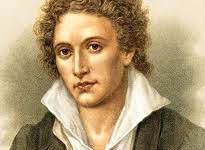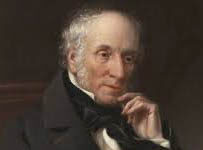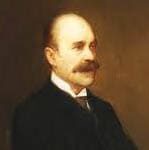Contributions of Wordsworth to the History of the Principles and Theories of Literary Criticism
Contributions of Wordsworth to the History of the Principles and Theories of Literary Criticism
Contributions of Wordsworth to the History of the Principles and Theories of Literary Criticism
William Wordsworth (1770-1850) was basically a poet, not a critic—because he left behind him only books of poetry not even a single book or treatise on literary criticism. But as a poet, he wrote poetry with a new outlook both in theme and style which needed some explanation and analysis for better comprehension of his poetry. Hence he wrote prefaces to his poetry book, The Lyrical Ballads,1798 propounding, explaining and establishing his new outlook on poetry. These prefaces however he revised and enlarged constantly for the subsequent editions of the Lyrical Ballads—which became the only storehouse of his literary criticism, especially theoretical criticism, and with these theoretical criticism he propounded, developed, and established a new tradition in literature that is termed as Romantic Tradition. But here to say that Wordsworth’s outlook on the new tradition was modified and enlarged by himself from time to time and his final refined outlook is stored in the preface to the Lyrical Ballads reprinted in 1808 and in the edition of 1815. In these prefaces, he propounded his view with necessary explanations on the theme of Poetry, On the Definition of poetry, on the Nature and Function of poetry, on the use of language in poetry, on the qualification of a poet, on the qualification of a critic, on the use of rhyme and meter on poetry and on the process of poetic creation.
Contributions of Wordsworth to the History of the Principles and Theories of Literary Criticism
Theme of Poetry
First, William Wordsworth reveals his views on the Theme of Poetry. Here is to say that William Wordsworth was the first poet of England who emphasized and pleaded for the simplicity in theme and style of poetry. He says and opines that the materials or themes of poetry should be those subjects that are generally common to all and that can draw the interest of human mind. The trifling matter and incidents of village life may be the materials of poetry. He writes in the Preface to The Lyrical Ballads, 1798:
It’s honorable characteristic of poetry that its materials are to be found in every subject which can interest the human mind.
Thus, William Wordsworth sought to extend the theme and scope of poetry by bringing it from restricted scope to the humble and common life.
Contributions of Wordsworth to the History of the Principles and Theories of Literary Criticism
Definition of Poetry
Secondly, Wordsworth proceeds to build a new Definition and Nature and Function of Poetry. He gives emphasis that poetry is a matter of feeling, mood, and temperament. When the mood is on the poet it flows naturally and without labour. Moreover, he says that emotion or passion is the main thing in poetry. Thus giving emphasis on the spontaneity of passion in poetry he makes the Definition of Poetry as:
”Poetry is the Spontaneous overflow of powerful passion.”
This definition contains the main spirit of poetry. Such as:
First poetry is the work of emotion or passion. He says, poetry is not born in the mind but it overflows with feelings in the heart.
Secondly, poetry is a spontaneous expression, because poetry should never be created by force. It must flow voluntarily and willingly from the soul of the poet.
Contributions of Wordsworth to the History of the Principles and Theories of Literary Criticism
Function of Poetry
He also determines the Function of Poetry and revolutionized its objectives. Till him, poetry was thought to be the source of instruction and delight. It is Wordsworth who repudiated the age-long objectives of poetry and advocated that the function of poetry should never be instructive but to delight. To afford pleasure to the heart and mind of the readers is the main function of poetry. But the pleasure or delight that poetry affords is not mere idle amusement like rope drawing or sherry drinking. The pleasure of poetry is of a more exalted kind. It is the pleasure that results from increased knowledge and understanding.
Moreover, Wordsworth considered poetry to be superior to both history and philosophy and even to science. He regards it to be the most philosophical of all writings. He says that the appeal of science is merely to the intellect, poetry complements science by adding feelings to its truths, and by its imaginative treatment, it makes people more fully aware of them. Hence, it is seen that the function of poetry determined by Wordsworth is more exalted and deep. It is not the pleasure of the senses, but of the mind and intellect.
Contributions of Wordsworth to the History of the Principles and Theories of Literary Criticism
Poetic Diction
Thirdly, Wordsworth brings forward his views on Poetic Diction. Poetic diction comprises of the use of language, meter, rhyme and selection of words.
On the use of language and selection of words, he was revolutionary. He was always of the view that as the theme of poetry should be taken from simple, common, and rustic life so should its language be. In other words, the language of poetry should be simple and it should be taken from humble and rustic life. He was of the opinion that figures of speech—metaphors, similes and other decorations might not be used unnecessarily. In saying so he was really against the tradition of his previous ages. The poets before him used artificial language and decoration which was not the result of genuine passion. He again says that the selection of words should be judicious because the aim of the poet is to give pleasure to the readers and the language which is artificial would go against the taste of the common readers. But he also avoids coarse and too many vulgar words to guard disgust.
His view on the Meter of Poetry is that Meter is something regular and uniform. The Meter is fixed. He advocates in favor of the use of meter in poetry for the following causes as—
- Meter gives pleasure as it softens and tempers painful emotions and imparts grace and dignity to the lighter emotions.
- Meter gives the idea of the skill with which the poet overcomes difficulties.
- It provides the elements of contrast and the perception of similarity in dissimilarity.
After this, William Wordsworth lays down the Process of Poetic Creation. He says that “poetry is the emotion recollected in tranquility.” Again he defines poetry as “the expression of powerful passion”. But this expression of “powerful passion” which is recollected in tranquility needs four stages to be poetry as—(a) observation (b) recollection (c) contemplation and (d) imagination. To explain these four stages Wordsworth says that first of all there is the observation or perception of some object, character, or incident which sets up powerful emotion in the mind of the poet. Secondly, there is a recollection of that emotion in tranquility. Thirdly, contemplation on the emotion recollected in tranquility. Fourthly, there comes the imagination rounding the object which incites the poet to compose poetry.
Contributions of Wordsworth to the History of the Principles and Theories of Literary Criticism
Qualification of a Poet
Fifthly, he lays down the principles regarding the Qualification of a Poet. He says that a poet should have the following qualifications —
- He must be a man of greater and livelier sensibility.
- He must have the greater power of observation.
- He must have a greater knowledge of human nature.
- He must have a more sympathetic and comprehensive soul so that he can feel for others.
- He must have the greater power of imagination.
The poet should have these qualifications because he is a man who communicates with men. His main aim is to give pleasure to his readers.
Contributions of Wordsworth to the History of the Principles and Theories of Literary Criticism
Qualifications of a Critic
Sixthly, William Wordsworth though wrote no independent book or treatise on the theory or principle of literature, yet he left some things pertaining to poetry in the Prefaces to his lyrical Ballads. He also lays down the Qualifications of a Critic as follows—
- He must be both poetic and philosophic.
- His affection must be free and kind.
- His understanding must be clear and judgment must be dispassionate.
- He must not be clouded by any sort of prejudices.
- His sensibility must have been trained by the continuous study of poetry.
- He must be of a mature age.
After giving these qualities to the critic of poetry, Wordsworth concludes that a critic may have acquired these qualities and even though he may not always be just and correct, he needs continuous training to perform his duty.
These are the contributions of William Wordsworth to the history of the theory of literature. From the study of his contributions, it appears that in poetic theories he was new and revolutionary if compared to the theories before him. His principles regarding poetry began the Romantic Tradition in literature. Some poets and writers co-operated with him being influenced by his theories and brought the tradition to success. Going under his influences, Coleridge and Shelley wrote books on the principles of poetry and developed, widened, popularized, and established the Romantic Tradition in literature. Hence, Wordsworth may rightly be called the Father of Romanticism in literature. 0 0 0.
Contributions of Wordsworth to the History of the Principles and Theories of Literary Criticism
You May Like:
- ‘Poetry is the Criticism of LIfe’ Mathew Arnold-An Explanation
- Contributions of S T Coleridge to the History of Literary Theory and Criticism
N. B. The article ‘Contributions of Wordsworth to the History of the Principles and Theories of Literary Criticism’ originally belongs to the book entitled ‘ Essays on Literary Theory and Principle‘ by Menonim Menonimus.
Contributions of Wordsworth to the History of the Principles and Theories of Literary Criticism
Books on Literary Criticism by M. Menonimus:
- World Short Story Criticism
- World Poetry Criticism
- World Drama Criticism
- World Novel Criticism
- World Essay Criticism
- Indian English Poetry Criticism
- Indian English Poets and Poetry Chief Features
- Emily Dickinson’s Poetry-A Thematic Study
- Walt Whitman’s Poetry-A Thematic Study
- Critical Essays on English Poetry
- Tawfiq al-Hakim’s Novel: Return of the Spirit-An Analytical Study
- Tawfiq al-Hakim’s Novel: ‘Yawmiyyat Naib Fil Arayaf’-An Analytical Study
- Analytical Studies of Some Arabic Short Stories
- A Brief History of Arabic Literature: Pre-Islamic Period (500 AD-622 AD)
- A Brief History of Arabic Literature: Early Islamic Period (622 AD-661 AD) …
Related Search:
- Literary Criticism of William Wordsworth
- Wordsworth as a Romantic Critic
- Literary Criticism of T S Coleridge
- History and Principles of Literary Criticism
- Critical Analysis of Coleridge’s Imagination and Fancy
- Coleridge’s Definition of Poetry
- Arnold’s Concept of Poetry as a Criticism of life
- Poetry Definition Types











